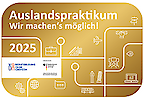Teaching
Human medicine
Social medicine -- health economics, health systems, public health -- introduction to global health -- global health (elective subject II) -- medical geography
Social medicine
Social medicine includes
- the investigation of the frequencies and distribution of widespread diseases
- related to the social and natural environment,
- and the organization of the healthcare system
- including social security institutions,
- the assessment and scientific evaluation. German Medical Association (BÄK)
QB3: Health economics, health systems, public health
The seminar also takes place in the 6th clinical semester and presents economic principles and the organizational structure of the healthcare system. It is organized by the GeoHealth Centre.
Elective course 'Introduction to Global Health'
Elective subject I is aimed at medical students in the first two years of study ('preclinical') who are interested in health in low and middle income countries. It is offered annually in the summer semester by the Global Health Section.
Elective subject 'Global Health'
Elective subject II (in the 'clinic') deals in depth with the fields of health care and health systems under simple conditions.
Medical geography
Medical geography (also often referred to as health geography) examines health-related issues using geographical methods. On the one hand, this event offered by the GeoHealth Center addresses health ecology topics: which physical, chemical, biological, social and cultural factors influence spatio-temporal distribution patterns of diseases? On the other hand, medical geography contributes to health system research and in particular asks about the spatial-temporal patterns of the provision and use of health services. Finally, medical geography also examines the effects of places, places and landscapes themselves on human health and well-being. The concept of therapeutic landscapes plays a central role here.
Master's degree in microbiology
"Public health-relevant hygienic-microbiological examination methods" (MIB 55 A or B) -- "Literature research and database analyzes" (Module MIB 56)
The IHPH or GeoHealth Center is represented in the master's degree program in Microbiology with different modules.
“Public health-relevant hygienic-microbiological examination methods” (MIB 55 A or B)
In the laboratory exercise “Public Health-relevant hygienic-microbiological investigation methods” (MIB 55 A or B) lasting six or four weeks, the focus is on learning scientific project management and experimental procedures in the field of hygienic-microbiological investigations, especially water hygiene.
“Literature research and database analysis” (Module MIB 56)
Here, students carry out literature research and database analyzes largely independently on a limited hygienic-microbiological topic.
MSc Global Health
English-language continuing education course
The continuing education course is offered by the Medical Faculty of the University of Bonn and the University Hospital of Bonn in cooperation with the Institute for Environment and Human Security of the United Nations University (UNU-EHS). The management of the course is located in the Global Health Section.


















